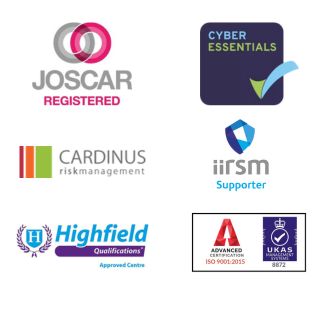First-Aid needs Assessments – What are they and how do I complete one?
As an employer you have obligations and responsibilities to ensure the health and safety of your employees and visitors to your premises. Arguably one of the most important and common areas for consideration is how your company reacts to anyone that is hurt or taken ill whilst at work.
It is a common misconception that first-aid requirements are based solely on the number of employees you have, in fact legislation states that you must have adequate and appropriate first-aid provisions in place to allow you to treat any injured or ill employee or visitor immediately. But how do you determine what would be considered as adequate and appropriate for your organisation?.
The first step in this process is to complete a First-Aid needs Assessment.
What is a First-Aid needs Assessment?
As a business you need to complete a First-Aid needs Assessment to identify what the risks are and how you can minimise them with the help of first-aid. This includes what training is needed, number of first-aiders, where they should be located and more.
The Health and Safety (First-Aid) regulations 1981 offers guidance on how to carry out this assessment and states that it should consider these key points: –
- The nature of the work and workplace hazards and risks;
- The nature of the workforce;
- the organisation’s history of accidents;
- the size of the organisation;
- the needs of travelling, remote and lone workers;
- work patterns;
- the distribution of the workforce;
- the remoteness of the site from emergency medical services;
- employees working on shared or multi-occupied sites;
- annual leave and other absences of first-aiders and appointed persons;
- first-aid provision for non-employees.
You should start this process by reviewing your Risk Assessments already completed for the workplace as this will have identified the hazards and thus the likely types of accidents that may occur.
By reviewing your accident and incident statistics you will get a level of risk and how well the controls are working, and also the types of accidents that are likely to occur. Then you can review the types of first-aid provision. For example, offices are generally considered lower risk than a factory so there will be different levels.
Types of first-aid provisions range from: –
- appointed person – generally for businesses with low risk or/and a small number of employees. They will generally look after the first-aid kit and call the emergency services if needed. They will be fully trained in what to do in an emergency. Although you should have a first-aid kit anyway even if no one is trained to use it.
- ‘Emergency First-Aid at Work’ qualified individual who can give emergency first-aid at the scene for a range of specific injuries and illnesses. This person will have completed a one-day course valid for three years.
- ‘First-Aid at Work’ qualified person gives the necessary skills and knowledge to respond to the emergency and potentially give more in depth support due to more detailed training. Normally a three-day course valid for three years.
These are just some of the basics to review, depending on your industry you may need further measures such as first-aid rooms for high risk areas.
In relation to the level of provision you need, the regulations do provide some guidance on numbers but the purpose of this First-Aid needs Assessment is to evaluate the level of risk and how you can look after your employees, visitors, members of the public, and anyone else who comes in to contact with your company.
Do you need help with your First Aid at Work?
Whether you need help completing a First-Aid needs Assessment to understand the risks and put adequate provision in place or ensure your team members are adequately trained in first-aid our team can help. We have a range of first-aid at work services tailored to your needs and organisation.
To have an initial no obligation chat to a member of our team, give us a call on 01666 503 686 or complete our quick contact form.





